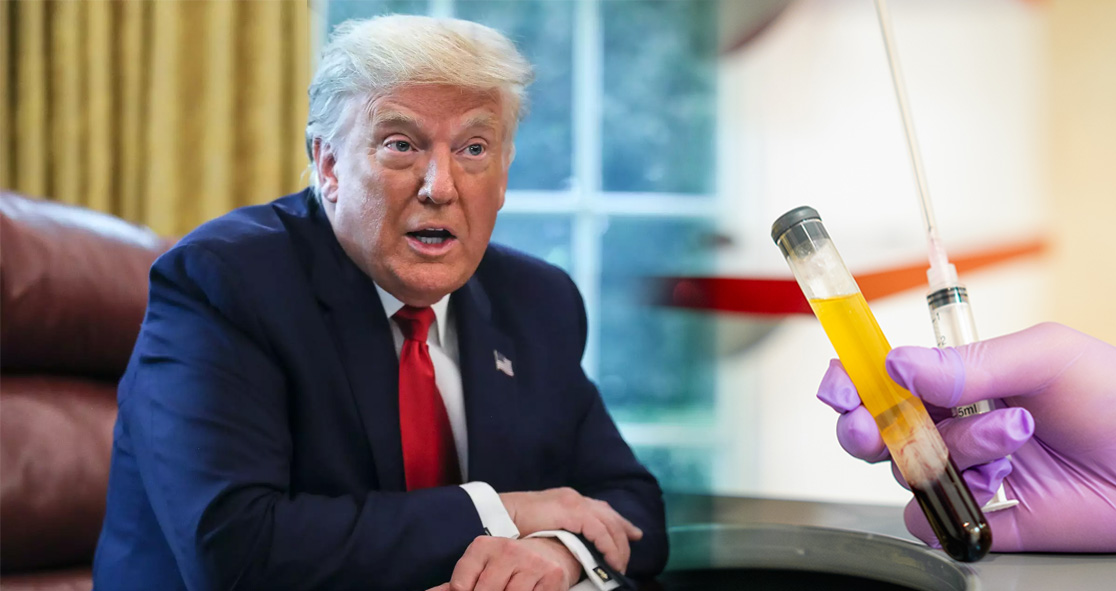After getting diagnosed with COVID-19, President Donald Trump has received an experimental antibody treatment, according to the White House.
In a memorandum, Trump’s physician Dr. Sean Conley wrote, “As a precautionary measure, he received a single 8 gram dose of Regeneron’s polyclonal antibody cocktail. He completed the infusion without incident.”
The therapy is a combination of two monoclonal antibodies, which is meant to provide the immune system with an immediate and temporary boost to fight off the virus.
Monoclonal antibodies are made in a lab to mimic the body’s natural antibodies, which act by recognizing specific microbes – in this case, SARS-CoV-2, the virus that causes COVID-19. Antibodies also act by harnessing the immune system to combat the virus.
The antibody therapy is still unproven but experts consider it the most promising treatment option for COVID-19.
Headquartered in Tarrytown, New York, Regeneron Pharmaceuticals confirmed the news that it provided its antibody treatment to Trump under what is called “compassionate use,” through which the U.S. Food and Drug Administration (FDA) allows access to drug candidates outside of trials for patients with life-threatening conditions or serious diseases.
Regeneron’s experimental antibody treatment is currently undergoing clinical trials as a potential therapy and prevention of the disease in people who have been exposed to the virus.
On Tuesday, the biotechnology company said that preliminary findings from the trials suggest the therapy appears to be beneficial in patients with mild to moderate COVID-19 illness.
Dr. Todd Rice of Vanderbilt University Medical Center in Nashville, Tennessee, said, “It decreased viral load, and made symptoms resolve faster.” He is not involved with Regeneron’s clinical trials.
The White House said Trump has mild symptoms, including a low-grade fever and fatigue. He has been taken to Walter Reed National Military Medical Center as a precautionary measure. The president has also been taking zinc and vitamin D supplements, famotidine (heartburn drug), a daily aspirin, and melatonin, a sleep aid, according to Dr. Conley. These are sold without a prescription and have no strong evidence that they help treat COVID-19.























